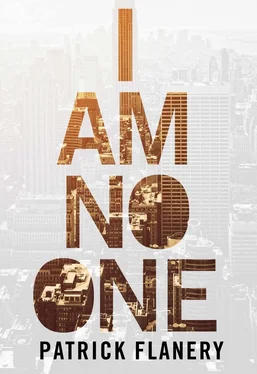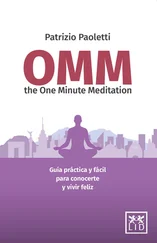All this was spinning in my thoughts as I sat in my New York apartment, turning over the pages of web addresses, which, though unremarkable at first, began to alarm me. I thought I recognized some of them, and not just in the obvious way that I would notice the root address for The New York Times or National Public Radio or The New Yorker or The Guardian or any number of other websites I frequent, but because I started to spot complete addresses for news stories that I knew I had read in recent days, and then I saw addresses that, frankly, made me begin to panic, not because my name appeared, but because they were addresses for two email inboxes, one in the NYU server, and the other from Google’s mail system. I reached for my laptop, logged into my Gmail account, and began entering addresses that were on the printout in front of me. Messages I had sent and received began to appear on the screen, and at this point my stomach dropped, I felt a chill pass through me, and my heart started hammering. This, I understood, these thousands of pages before me with who knows how many tens or hundreds of thousands of addresses on them, was a printout of my own web history. How many days or weeks or months or years were represented by twenty-five hundred pages of addresses, or even by five thousand if the second box was not just a set of duplicates? (I checked and the pages appeared to be different.) How much of my life was before me, and who on earth might have sent it? What might they be trying to tell me, other than the obvious, which is to say that they could see exactly where I had been, and that someone has been monitoring my activity for quite some time? The fact of digital surveillance was not itself a surprise, but surely the government would not present the information gathered to the person surveilled? No, this was, I felt certain, the work of some private entity, perhaps someone with a grievance who was preparing to blackmail me. This — I knew, I suddenly felt, I could see very clearly — was all too real a possibility, for there were without question secrets from the past decade that might well be exposed by my activity online, which someone might use against me, either in an attempt to shame me publicly — this was possible, truly, though I feel certain I have never done anything that would be judged, in the end, as intrinsically evil — or, and this seemed less probable, to try to get me fired from my job, though why anyone would wish this I cannot say. I have held no grudges against my former colleagues at Columbia, I got on exceptionally well with my colleagues at Oxford, both in the College and the Faculty of History, and in the months since starting at NYU I have found all my colleagues professional and, frankly, charming.
For hours that night I read through my history, in the telegraphic style of web addresses. I say read, though in fact I barely made a dent in those five thousand pages because once I had confirmed what was before me the temptation to check the addresses against my memory, to ascertain whether every email I had sent and received was there accounted for (they were, to my astonishment, every one of them, beginning from a week before the first box arrived and going backwards in time, though how far I could not quite discern on first reading), and in so reliving my recent activity I felt both the futility and waste of my hours but also the horror of being watched, of knowing that even if someone was not actively monitoring everything I did then they were surely recording for future use everything I read and wrote and viewed online. I do not imagine, I am sensitive enough for this to be true, that the intrusion I felt in those hours alone on a cold Monday night in my apartment was as painful or traumatic as rape, but rape was the metaphor for which my mind first grasped. The violation felt like a hand punching up through my viscera and seizing my heart. I could not begin to go to sleep. It is one thing to imagine a faceless government entity somewhere logging my activity, quite another to have someone go to the trouble of printing out the record of such activity on white paper, placing it in a standard cardboard box, wrapping it in brown paper, and addressing it in permanent marker before having it delivered, or delivering it himself, in person, in disguise, to my home address.
Unable to sleep, I watched Tuesday dawn knowing I could not possibly teach that morning. On the radio, Democracy Now was reporting that the United Nations had scheduled peace talks between rebels and the Syrian government, while the government of Pakistan was protesting America’s ongoing drone war, which seems, according to The Washington Post , to be under the control of the CIA rather than the US military. On the New York Times website I read about the effective banning of street protests in Egypt, and because I suddenly wondered about the wisdom of reading such an article in a form that was traceable, and, more to the point, because the story itself was something I did not wish to think about, I turned off my computer and stared out the window at the dull November light, seeing a face in my mind, in the movements of cloud behind the projection of memory: a face I had been trying, unsuccessfully, to forget, along with the three syllables, the arrangement of phonemes, attached to its image.
Since it was the week of Thanksgiving and a major storm was threatening the East Coast, no one would complain if I canceled my classes, which I promptly did. With nowhere else to be I stayed in bed all morning listening to the radio, reading the news about Egypt and Syria and Iran and Iraq and Pakistan and Yemen even when I wanted not to think about such places, listening and reading as I lay surrounded by the record of my recent life, sometimes moved to bouts of shaking and weeping. There was more of my life recorded in those pages than I cared to remember. Not that I have done anything about which I should be truly embarrassed. A sex life lived out alone, in isolation, with still images on a screen, not even with another adult interacting in some live if remote way on the other end of an anonymized connection, did not seem extraordinary, since so very many people view porn and the porn I had looked at over the years was not even terribly exceptional, I would hazard. Yet seeing in glimpses the perambulations of my own fantasies and desires mapped in this way so galled me that I felt I could not even leave the apartment, terrified that the shame would flare on my cheeks and brow, visible for all.
What, in fact, if the pages had come from a current student, perhaps even Rachel? She had behaved slightly out of character the day before, and it was not unreasonable to suspect that, as one of my closest advisees, one of the students I had come to know best in those first months back in New York, she might have taken offense at something I said in the welter of comments I have made on her work. It is possible I unwittingly provoked her anger, such that she might attempt to persecute or threaten me. Something like this had happened in Oxford, I have to admit, actually on more than one occasion.
I cannot explain why I have attracted this particular breed of student over the years. In one of my tutorial groups during my first year at Oxford I had a student named Jayanti, and in that small group (I think perhaps there were at most only half a dozen second-year undergraduate students), Jayanti was always the least prepared, had sometimes not prepared at all, failing to do the reading, or writing nothing she might present. Halfway through the course of the eight-week term in which the trouble occurred (I think it was Michaelmas, I remember the leaves turning, or rather I remember taking walks to try to sort out what was happening and being conscious of rotting leaves underfoot), Jayanti began missing tutorials. With each tutorial she missed I would send her an email noting her absence, enquiring if she had been unwell, hoping she would be able to attend the next tutorial, reminding her that tutorials were compulsory and she should send me the work she had failed to deliver in person. Always I copied in the Senior Tutor. At first Jayanti responded in a measured way, apologizing, claiming illness, offering a doctor’s note, asking to arrange to make up the missed class, though I was under no obligation to provide such a service and I do not think we had any meetings outside of the ordinary tutorial sessions.
Читать дальше












